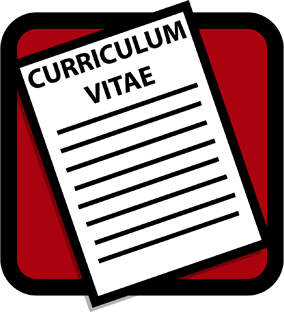9 resume mistakes that may cost you a job
 In the digital age, good old-fashioned paper may seem part of the past, but LinkedIn has not yet completely replaced the old-fashioned resume.
In the digital age, good old-fashioned paper may seem part of the past, but LinkedIn has not yet completely replaced the old-fashioned resume.If done correctly, your resume will tell your story and sell your talents.
Although the most advanced technologies have changed the way you get a job, resumes remain an integral part of the hiring process.
')
A badly written resume will work against you. To prevent this from happening, we note the most glaring errors and omissions of the resume.
1. Grammatical and typographical errors
In the summary there is no place for carelessness. According to a CareerBuilder survey, more than half of employers identified a resume with misprints of one of the best mistakes, which allows you to automatically refuse a candidate.
In order to avoid mistakes, it is useful to let your loved one read your resume.
2. Transfer of incorrect information
This may seem obvious, but making a mistake in a phone number or a date is easier than ever. Therefore, if suddenly you write that you are focused on details, and the employer finds incorrect information in a resume, for him it will be a big red rag.
Even if the wrong information doesn’t come to light at the interview stage, in the end it will still pop out.
3. Sending a sample resume
Many consider it normal to download the template from the Internet, change the main points and send to the employer, but this is a completely wrong approach.
A CareerBuilder survey found that a third of employers identify resumes that are too general in nature, one of the common mistakes that can lead to an automatic expelling of an applicant.
A personalized resume is focused on the needs of the target audience, so if a job description requires market analysis and planning, then it’s not a bad idea to use real examples of analysis that you performed.
4. Using too complex formatting and styles.
Formatting is the key to the heart of the employer. Do not allow the used fonts and graphics to break out of the overall design style, as well as distract the reader from what is really important (for example, your qualifications). If you are going to use list markers, they must be the same size and shape in each section.
There is only one position of the resume where you can be creative, as you like: your language. Using the same boring formulations will drive any reader to sleep, but is this what is required when applying for a job?
Be creative and lure a human resources specialist with a great syllable that tells you much more about your personality and creative abilities.
5. Use vague wording
You will never hit the target with a shapeless resume, and your well-focused competitor will knock you out of this game.
When you are too verbose and vague, the employer will not be able to understand what you actually did before. Employers would like to see as much information as possible in the foreground.
Highlight your achievements.
6. Attempts to cram as much text as possible into one page.
There are no strict rules about the length of a resume, although the average employer prefers a resume of graduates in the amount of one page, and more experienced workers in the amount of at least two pages.
When trying to condense your work experience and multi-page skills, select the achievements that most relate to the core responsibilities of the job and the company's corporate values.
7. Lack of accurate dates
The lack of accurate dates of employment is often suspicious of the employer. If you have a big gap in your work, experts suggest that you immediately tell about it.
CareerBuilder found that a third of employers identify resumes that do not contain exact dates of employment as one of the most common mistakes that can lead to automatic rejection of a candidate.
8. Lack of skills
You may think that the “skills” section is optional. Many recruiters offer different ways to solve this problem when drafting a resume.
For example, a list of skills and examples of how you applied these skills can be used as a great way to stand out from the crowd (which is perfectly consistent with paragraph 5 of this list).
9. Use of objective statements
Current trends indicate that the days of objective statements in resumes are gone.
Consider an example of an objective statement:
“I am looking for a vacancy of investment analyst to advance my career in the financial sector.”
There are two problems here: firstly, very dryly, and secondly, the focus is on what the candidate wants for himself (to promote his own career), and not what he can offer a potential employer.
Instead, experts suggest emphasizing your value to a future employer.
All the requirements described by me are only of an advisory nature, and in no way their compliance does not guarantee a positive decision. Thanks for attention.
- 10 phrases, after which your resume will be put aside
- “Call me, call”, or how to get a job in an IT company
Source: https://habr.com/ru/post/284010/
All Articles